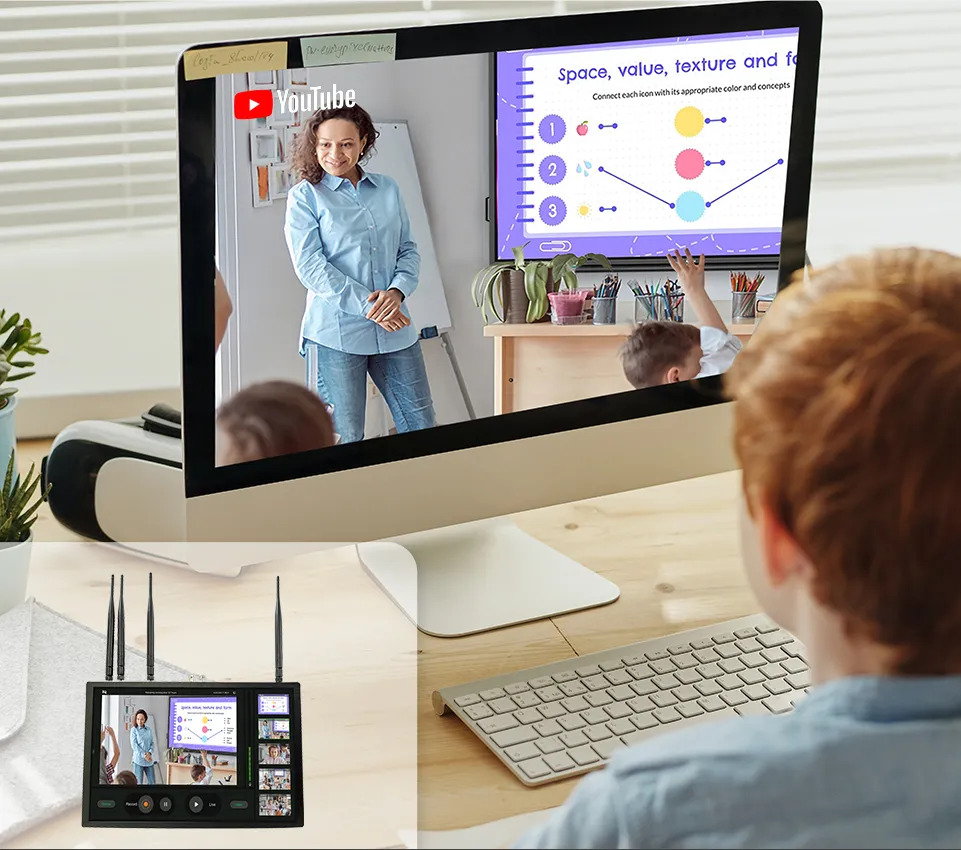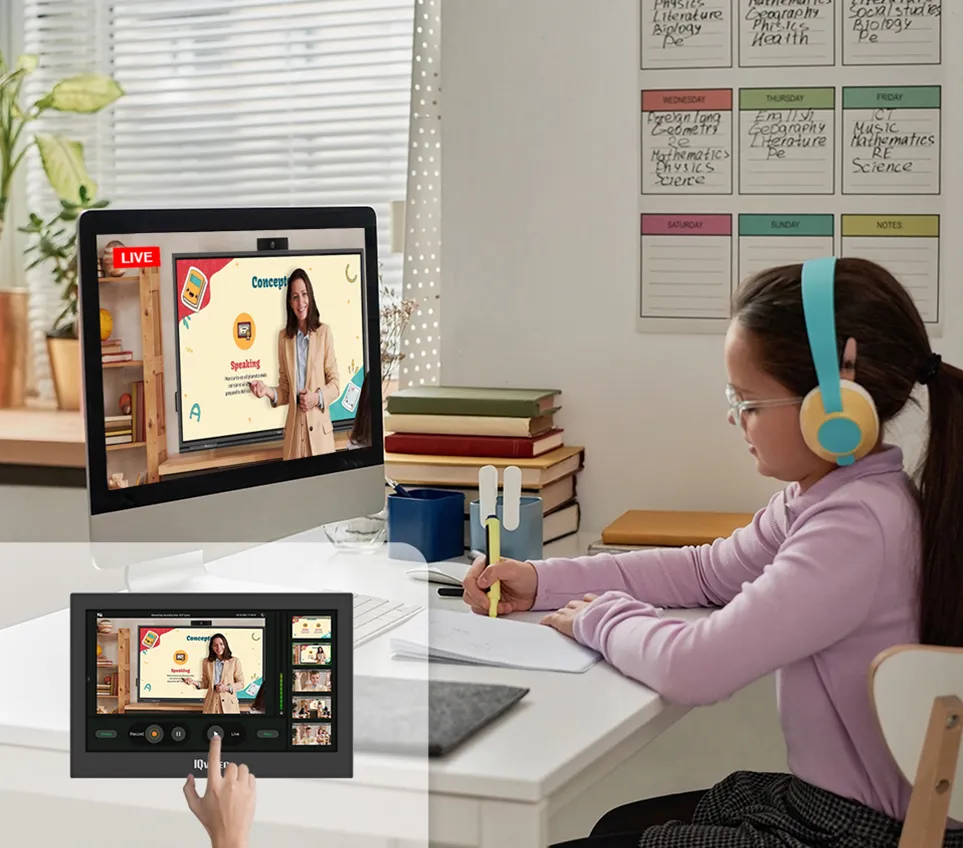
Lecture capture brings tremendous convenience to classrooms and students.
Educational institutions worldwide are increasingly adopting lecture capture systems due to their myriad benefits. Here are several compelling reasons why educators are incorporating these systems into their teaching methodologies:
Lecture capture systems provide students with the flexibility to access recorded lectures at their convenience. This is especially valuable for learners with diverse schedules, accommodating part-time students, working professionals, and those with varying learning paces.
The ability to review recorded lectures allows students to reinforce their understanding of complex topics. This review process aids in clarifying concepts, revisiting challenging sections, and consolidating knowledge, contributing to improved academic performance.
Lecture capture systems facilitate remote learning, enabling students to engage with educational content from anywhere. This feature has become increasingly crucial, especially during unforeseen events like the global pandemic, where traditional in-person classes faced disruptions.
Interactive features within some lecture capture systems, such as quizzes, polls, and discussions, contribute to heightened student engagement. These tools transform passive learning into an active and participatory experience, fostering a deeper understanding of the subject matter.
Students have diverse learning styles and preferences. Lecture capture systems cater to visual and auditory learners by providing multimedia content. This versatility ensures that educators can appeal to a broader audience and accommodate various learning preferences.

Recorded lectures serve as valuable revision resources during exam periods. Students can revisit specific lectures, focus on challenging topics, and prepare more effectively for assessments. This aids in reducing stress and improving overall academic outcomes.
Lecture capture systems not only benefit students but also support professional development for educators. Teachers can review their own lectures, identify areas for improvement, and refine their instructional techniques, fostering continuous growth and effectiveness in their teaching practices.
Learners progress at different paces, and lecture capture accommodates this variability. Students can navigate through content at their own speed, pausing, rewinding, or fast-forwarding as needed. This personalized learning approach caters to individual student needs and promotes a self-paced educational experience.
Lecture capture systems have evolved to cater to diverse educational needs. Here are various types of the lecture recording systems:
Traditional lecture capture systems involve dedicated hardware components, such as video station for touch and recording operation, auto-tracking cameras and ceiling microphones strategically placed in classrooms, such as IQTouch LCS710. These systems ensure high-quality video and audio recording.
Software-based lecture capture systems leverage existing hardware like computers and webcams. These solutions often come with easy-to-use interfaces, making them accessible for educators with simple setup and lower budget. Besides, we can also leverage the mainstream video conferencing software for this function.
Some lecture capture solutions seamlessly integrate with smart classroom technologies, such as interactive whiteboards and digital displays like IQTouch series. This all-in-one integration enhances the overall teaching and learning experience.
Mobile-centric lecture capture systems allow educators to capture lectures without limitation for location like IQVideo LCS910. This flexibility enables recording in various environments beyond the traditional classroom setting like auditoriums, gyms, and playground.

IQVideo LCS710 provides lecture capture hardware systems that with highly integrated design that consists of devices including video station, auto-tracking cameras for teacher and students, and ceiling microphone, which reduces concerns for implementing multiple devices and compatibility, allowing educators to capture and manage multimedia content effortlessly.
Panopto offers a comprehensive lecture capture solution, allowing educators to record, stream, and manage video content seamlessly. Its hardware setup includes cameras, microphones, and capture appliances, ensuring high-quality audio and video recordings.
Echo360 provides lecture capture hardware solutions designed to enhance student engagement through active learning. Its hardware includes cameras with tracking capabilities, microphones, and capture devices, enabling educators to deliver dynamic presentations while recording content for later review.
Kaltura offers lecture capture hardware designed for educational institutions to create, manage, and distribute video content efficiently. Its hardware solutions include cameras, microphones, and capture appliances, providing educators with the tools needed to deliver engaging lectures and tutorials.
Matrox offers lecture recording hardware solutions designed for classrooms and lecture halls. Its systems include capture cards, video encoders, and streaming appliances, enabling educators to capture, encode, and distribute high-quality video content in real-time or for later playback.
Here are some common misconceptions about lecture capture systems:
Some individuals mistakenly believe that lecture capture systems are inherently complex and difficult to use. However, in reality, modern systems are designed with user-friendly interfaces, ensuring that educators can easily navigate the recording and storage processes without requiring extensive technical expertise.
Another prevalent misconception is the assumption that implementing lecture capture systems involves significant device debugging efforts. This belief is outdated, as contemporary lecture capture solutions come as comprehensive packages with streamlined setups, minimizing the need for intricate hardware configurations and troubleshooting.
There is a misconception that recording lectures might have a detrimental impact on the overall teaching experience. Contrary to this belief, lecture capture systems have been proven to enhance teaching effectiveness. Educators can review their instructional methods, identify areas for improvement, and provide students with valuable resources for reinforcing their understanding of the course material.
These misconceptions often hinder the widespread adoption of lecture capture systems by creating unwarranted concerns. In reality, these systems are designed to simplify the recording process, improve teaching outcomes, and offer flexible learning opportunities for both educators and students.
Q: Does recording lectures consume significant storage space?
A: Most systems provide cloud storage solutions, alleviating storage burdens.
Q: Are additional hardware devices necessary?
A: Most systems only require basic cameras and microphones, complemented by conferencing software for usage.
The best lecture capture systems in 2024 not only offer convenience but also enhance teaching effectiveness. Educators and students can engage in more flexible learning and teaching experiences through these systems.
Here are some other articles that we think might interest you:
Flipped Classroom Recording System
Exploring Lecture Recording and Streaming Solutions
Breaking the Limits of Learning: Lecture Capture Classroom Empowers Remote Education
Copyright © 2017.Returnstar Interactive Technology Group Co., Ltd All rights reserved.